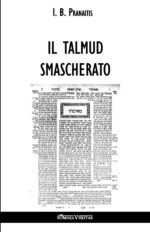Hitler was naturally incensed against the Bavarian government authorities, against the footling patriotic societies who were pawns in the French game, though often unconsciously so, and of course against the French. That he should write harshly of the French was only natural in the circumstances. At that time there was no exaggeration whatsoever in calling France the implacable and mortal enemy of Germany. Such language was being used by even the pacifists themselves, not only in Germany but abroad.
And even though the second volume of MEIN KAMPF was written after Hitler’s release from prison and was published after the French had left the Ruhr, the tramp of the invading armies still echoed in German ears, and the terrible ravages that had been wrought in the industrial and financial life of Germany, as a consequence of the French invasion, had plunged the country into a state of social and economic chaos. In France itself the franc fell to fifty per cent of its previous value. Indeed, the whole of Europe had been brought to the brink of ruin, following the French invasion of the Ruhr and Rhineland.














